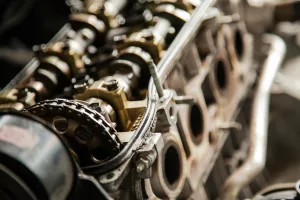The rivalry between Chevrolet (Chevy) and Ford is as American as apple pie. For over a century, these two iconic brands have competed head-to-head in nearly every vehicle category, from trucks and SUVs to sedans and sports cars. But when it comes to reliability, which brand comes out on top? In this article, we’ll dive into the reliability of Chevy and Ford vehicles by examining their history, consumer reports, maintenance costs, and performance across key models.
1. Reliability Overview: Chevy vs. Ford
Chevy’s Reliability Reputation
Chevrolet has built a reputation for producing dependable vehicles, particularly in its truck and SUV lineup. Models like the Chevrolet Silverado, Equinox, and Tahoe have consistently ranked well in terms of durability and longevity. However, Chevy’s performance in reliability rankings has been inconsistent over the years, with certain models experiencing issues related to electronics, transmissions, and engine components.
Ford’s Reliability Reputation
Ford, another American automotive giant, is known for its wide range of vehicles, from the F-Series trucks to the Explorer and Mustang. Ford’s reliability has also varied across its lineup. While the brand is recognized for producing durable vehicles, particularly in the truck segment, some models have faced significant challenges with transmission issues (especially the PowerShift transmission in small cars) and infotainment system bugs.
2. Consumer Reports and Reliability Rankings
J.D. Power and Consumer Reports Data
Reliability can be objectively measured using data from organizations like J.D. Power and Consumer Reports, which gather feedback from thousands of car owners.
- J.D. Power: According to the 2023 Vehicle Dependability Study (VDS), both Chevy and Ford perform similarly, with certain Chevy models slightly outperforming Ford in terms of fewer reported issues per 100 vehicles. However, the results vary depending on the segment. Chevy’s full-size trucks and SUVs tend to rank higher in reliability compared to Ford’s offerings in the same category.
- Consumer Reports: Consumer Reports, which also surveys vehicle owners, typically ranks both brands in the middle of the pack for reliability. Chevy and Ford both have models that are hits and misses. For example, the Chevy Bolt EV has been praised for reliability, while certain Chevy sedans have faced more issues. On the Ford side, the F-150 remains a reliable workhorse, but smaller vehicles like the Ford EcoSport have been less consistent.
Long-Term Reliability
When looking at long-term reliability, Chevy tends to have a slight edge in terms of vehicles that remain trouble-free after 100,000 miles. Trucks and SUVs from both brands are generally durable, but certain Ford vehicles, particularly those with more complex technology, have shown higher repair frequencies as they age.
3. Common Issues: Chevy vs. Ford
Common Issues with Chevy Vehicles
Chevy vehicles, while reliable overall, do have some recurring issues depending on the model:
- Transmission Problems: Models like the Chevy Traverse and Equinox have experienced transmission issues, especially in earlier model years.
- Electrical System Issues: Some Chevy vehicles, particularly the Silverado, have been known to experience electrical problems, including issues with the infotainment system and battery.
- Engine Issues: Certain models equipped with smaller turbocharged engines have had reported problems with reliability and engine longevity.
Common Issues with Ford Vehicles
Ford vehicles also have their share of common problems:
- Transmission Issues: The PowerShift transmission used in models like the Ford Fiesta and Focus has been a major source of complaints, with drivers reporting jerky shifts and premature failures.
- Infotainment System Bugs: Ford’s SYNC infotainment system has had reliability issues, particularly in earlier generations, where drivers reported freezing screens and unresponsive controls.
- EcoBoost Engine Problems: Some Ford models equipped with EcoBoost engines have faced issues with coolant leaks, carbon buildup, and turbocharger reliability.
4. Key Model Comparisons
Chevy Silverado vs. Ford F-150
The full-size truck segment is where the Chevy vs. Ford rivalry is most intense, with the Silverado and F-150 leading the charge.
- Chevy Silverado: The Silverado is known for its strong towing capability, comfortable interior, and rugged reliability. It has fewer reported issues with transmissions and engines compared to some Ford trucks. However, certain model years have experienced electrical problems.
- Ford F-150: The F-150 is America’s best-selling vehicle for a reason. It’s praised for its strong performance, wide range of engine options, and advanced technology. However, its reliability is slightly more variable, particularly with models equipped with the 10-speed automatic transmission.
Chevy Equinox vs. Ford Escape
In the compact SUV segment, the Chevy Equinox and Ford Escape are popular choices.
- Chevy Equinox: The Equinox offers a good mix of practicality and fuel efficiency, but earlier models have been plagued by transmission issues and reliability problems related to turbocharged engines.
- Ford Escape: The Escape has similar strengths but has faced more reliability complaints, particularly with its transmission and electronics. Recent models have improved, but long-term reliability remains a concern.
Chevy Malibu vs. Ford Fusion
For midsize sedans, the Chevy Malibu and Ford Fusion have been staple options.
- Chevy Malibu: The Malibu is generally a reliable sedan but has had some engine and transmission issues, particularly with earlier models.
- Ford Fusion: The Fusion has been a solid performer but has had its reliability marred by issues with the PowerShift transmission in certain variants and problems with infotainment systems.
5. Maintenance and Repair Costs
Repair Costs
Both brands have relatively similar maintenance and repair costs, though there are differences based on the type of vehicle:
- Chevy: On average, Chevy vehicles have annual repair costs around $649, according to RepairPal. Common repairs are usually related to the transmission and engine, but parts tend to be more readily available, which can keep costs down.
- Ford: Ford’s average annual repair cost is about $775, slightly higher than Chevy’s. The increased cost is often due to more complex technology and turbocharged engines that require specialized parts and labor.
Durability and Longevity
In terms of long-term durability, both brands have models known for reaching high mileage with minimal issues. However, Chevy trucks and SUVs have a slight edge in terms of fewer reported major repairs as they age.
6. Warranty and Service Programs
Both Chevy and Ford offer similar warranty coverage:
- Chevy: 3-year/36,000-mile basic warranty and a 5-year/60,000-mile powertrain warranty.
- Ford: 3-year/36,000-mile basic warranty and a 5-year/60,000-mile powertrain warranty.
While the warranties are nearly identical, Chevy has slightly better customer satisfaction ratings for its dealership service experiences, which can be an important consideration for long-term ownership.
7. Conclusion: Which Brand is More Reliable?
When comparing overall reliability, the differences between Chevy and Ford are relatively small, but some patterns do emerge:
- Chevy tends to be slightly more consistent across its lineup, with fewer serious reliability issues reported across key models, especially in trucks and SUVs. The brand’s trucks, like the Silverado, have a strong reputation for durability and fewer major issues over time.
- Ford offers strong performers, particularly with the F-150, but has more variability in reliability, especially in vehicles equipped with advanced technology and turbocharged engines. While Ford’s best models are competitive in reliability, certain vehicles (like the Fiesta and Focus) have hurt the brand’s overall standing.
In the end, Chevy holds a slight edge in reliability due to fewer widespread issues, lower repair costs, and better long-term durability, especially in their trucks and SUVs. However, your decision should ultimately depend on the specific model you’re interested in, as both brands offer reliable options for different needs.




